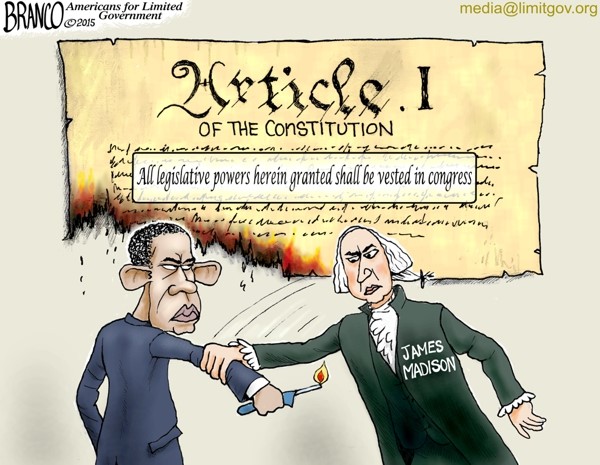By Rick Manning
In the wake of a bitter 2016 presidential battle and its acrimonious aftermath a critical question now confronts us: How do we govern a federal government many believe has become ungovernable?
And more importantly, how do we manage a financial situation most agree has become unmanageable?
By now our ship of state’s unsustainable course has openly manifested itself in the form of a $20 trillion debt, soaring deficits, rampant corruption, unfair crony capitalist trade agreements, wide open borders and a host of other ill-conceived foreign and domestic policy initiatives.
On January 3, 2017, 535 men and women from all corners of the Republic will convene in Washington, D.C. as duly elected members of the 115th Congress. Like the members of the 114 Congresses preceding them, these lawmakers will be constitutionally empowered to collect taxes, appropriate funds, print money, conduct treaties, raise armies and – if necessary – declare wars.
These powers (and others) have been explicitly enumerated in Article One of the U.S. Constitution – the blueprint for the establishment of the most prosperous, most powerful nation the world has ever seen. Lawmakers have been further empowered to enact legislation deemed “necessary and proper for carrying into Execution” the Congress’ enumerated powers. Moreover, the 435 members of the U.S. House of Representatives have the added responsibility of initiating all legislation related to the raising of revenue.
These are sweeping powers – and had Republican and Democratic congressional majorities consistently exercised them (and protected them) in recent years in accordance with the intent of the framers, our nation would be in much better shape on a number of critical fronts than it is today.
But now is not the time to assign blame. Now is the time to chart a new and better way forward for our citizens and taxpayers.
There are several key reforms to the rules of the U.S. House that might be taken up when members meet today to decide on those rules. For example, to expand rule XV to include an Article One Calendar. This would allow the House to vote up-or-down on legislation aimed at repealing Executive Orders, Presidential Memoranda and other executive branch rule-making that has not been authorized by Congress.
This makes sense. It is not enough to simply hold press conferences criticizing unconstitutional executive overreach – Congress must affirmatively stamp it out.
House rules could also grant subcommittee chairmen in the House full subpoena power under Rule XI – and the authority to hire dedicated staff for the purpose of conducting independent oversight hearings.
There is obviously no shortage of scandal in Washington, D.C. – to the point we have grown numb as a society to headlines that would have stirred us to outrage decades ago. Unfortunately, there has been a dearth of robust oversight and meaningful accountability – which has further eroded the public’s trust in government.
To regain this trust, Congress’ vigilance in uncovering and prosecuting public corruption must at least be equal to the efforts of those seeking to rig the system.
The House must also enforce rule XXI – which protects taxpayers from unauthorized executive branch expenditures. Over the last two fiscal years, the Congressional Budget Office (CBO) has identified $604 billion worth of unauthorized programs and activities – or spending items that have not been previously authorized by Congress.
Such expenditures must be given up-or-down reauthorization votes prior to being inserted into any appropriations bills. Failure to hold such votes amounts to a fundamental abdication of Congress’ power of the purse – and a massive betrayal of taxpayers.
House Speaker Paul Ryan should also reconsider the informal binding of committee assignments to the fundraising efforts of the National Republican Congressional Committee (NRCC). This is nothing but a pay-for-play scheme – one that is frankly beneath the dignity of the institution. If Congress is to have any credibility in exposing the corrosive influence of special interests on our government – it cannot be viewed as a tool of these same interests.
In other words more aggressive oversight must be accompanied by better self-policing.
The 115th Congress may not be able to undo all of the damage done by decades of executive overreach – but it can unify around common principles and begin the process of reclaiming its rightful constitutional prerogative. The power of the purse has the potential to radically reorient our Republic’s unsustainable trajectory – and it has been entrusted exclusively to those of us on Capitol Hill.
Congress must reclaim its constitutionally delegated powers – and exercise it in a manner that not only restores fiscal common sense but also the public’s faith in its government.
Rick Manning is the President of Americans for Limited Government.







